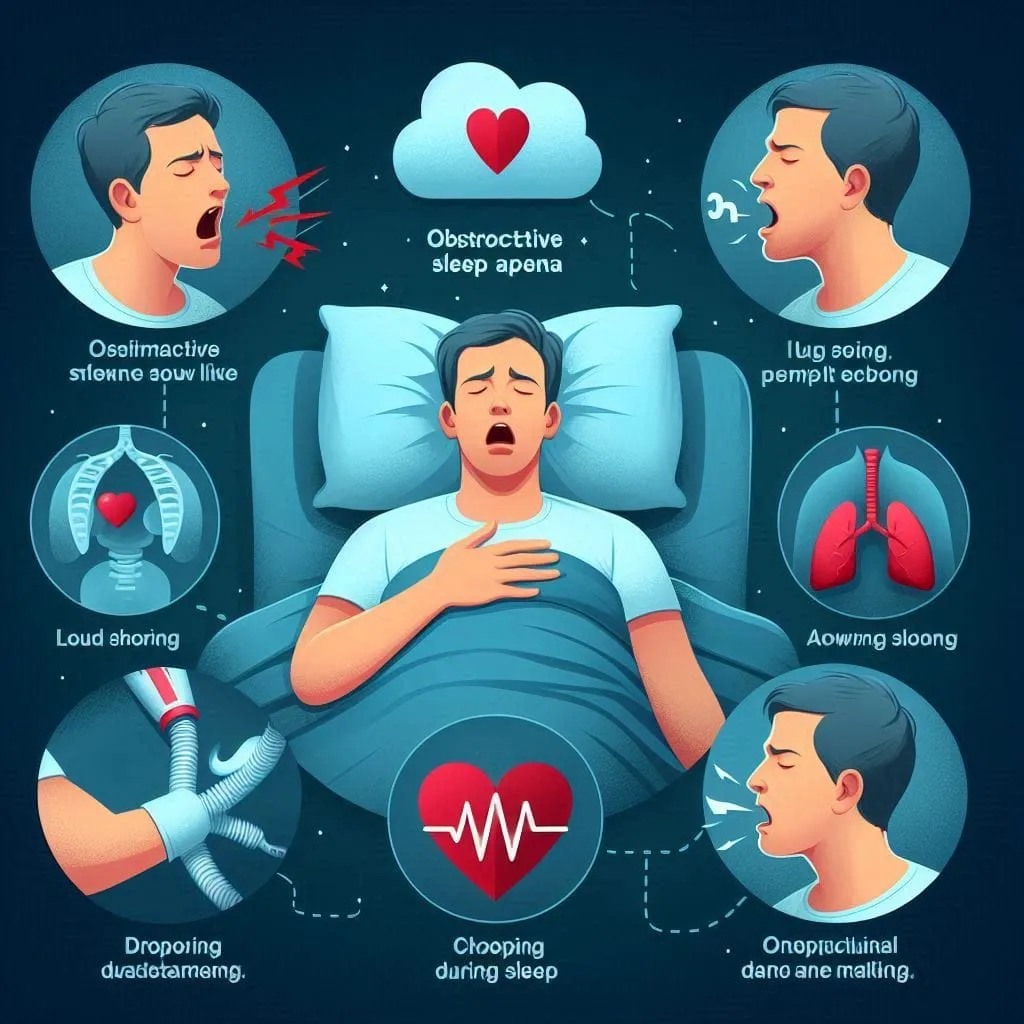Top 4 Symptoms of Obstructive Sleep Apnea You Should Never Ignore

Have you ever wondered why you feel so tired even after a full night of sleep? Obstructive sleep apnea might be the reason. This sleep disorder happens when your airway gets blocked while you sleep, leading to poor-quality rest.
If left untreated, it can cause serious health issues. In this post, we will discuss the top four signs of obstructive sleep apnea. By the end, you’ll know what to look out for and why it’s important to seek help from a sleep apnea doctor. Let’s get started!
1. Loud Snoring Is A Major Red Flag
One of the most common signs of sleep apnea is loud snoring. This happens because the airway is partially blocked, causing a vibrating sound. If your snoring is loud enough to disturb others, it could be a warning sign.
Although snoring by itself doesn’t mean you have sleep apnea, it’s a major red flag. If you’re also experiencing other symptoms, it’s time to pay attention. A sleep apnea specialist can help you understand if your snoring is linked to this condition.
2. Choking Or Gasping During Sleep
Another important symptom is choking or gasping for air while asleep. This happens when your airway becomes completely blocked, causing you to briefly stop breathing. You may not even be aware of it, but a partner might notice it.
If this happens regularly, it’s a sign of obstructive sleep apnea. These pauses in breathing can be dangerous. They may occur multiple times throughout the night, disrupting your sleep cycle.
Over time, this can cause a lack of oxygen, which can strain your heart and other organs. It’s important to get sleep apnea help before it leads to more serious health problems.
3. Excessive Daytime Fatigue
Do you often feel tired during the day, even after a full night of sleep? This is another key symptom of obstructive sleep apnea. The constant interruptions in your sleep cycle can leave you feeling exhausted when you wake up.
Even if you sleep for eight hours, you might still feel sleepy. This can affect your energy levels, making it hard to enjoy daily activities.
You might also find yourself needing naps throughout the day to stay awake. If you struggle to stay awake during meetings or feel sluggish throughout the day, it’s time to talk to a sleep apnea doctor.
4. Difficulty Concentrating Or Memory Problems
Sleep apnea can also affect your ability to focus and remember things. Poor sleep quality can make your brain foggy, leading to trouble concentrating. If you find it hard to stay focused or remember details, it could be due to the lack of rest.
This symptom is often ignored, but it’s important not to overlook it. Remember, it’s also important to get professional sleep apnea treatment to improve your mental clarity.
Learn The Importance Of Addressing Obstructive Sleep Apnea Using This Guide
If you notice any of the symptoms mentioned above, it’s important to take action. Obstructive sleep apnea can cause a variety of health problems, including high blood pressure, heart disease, and diabetes. If you think you might have sleep apnea, don’t wait.
Visit a sleep apnea doctor or specialist who can provide the right diagnosis and treatment. Early treatment is key to managing the condition and improving your overall health. Don’t let sleep apnea take a toll on your life.
Did you like this guide? Great! Browse our website for more!





